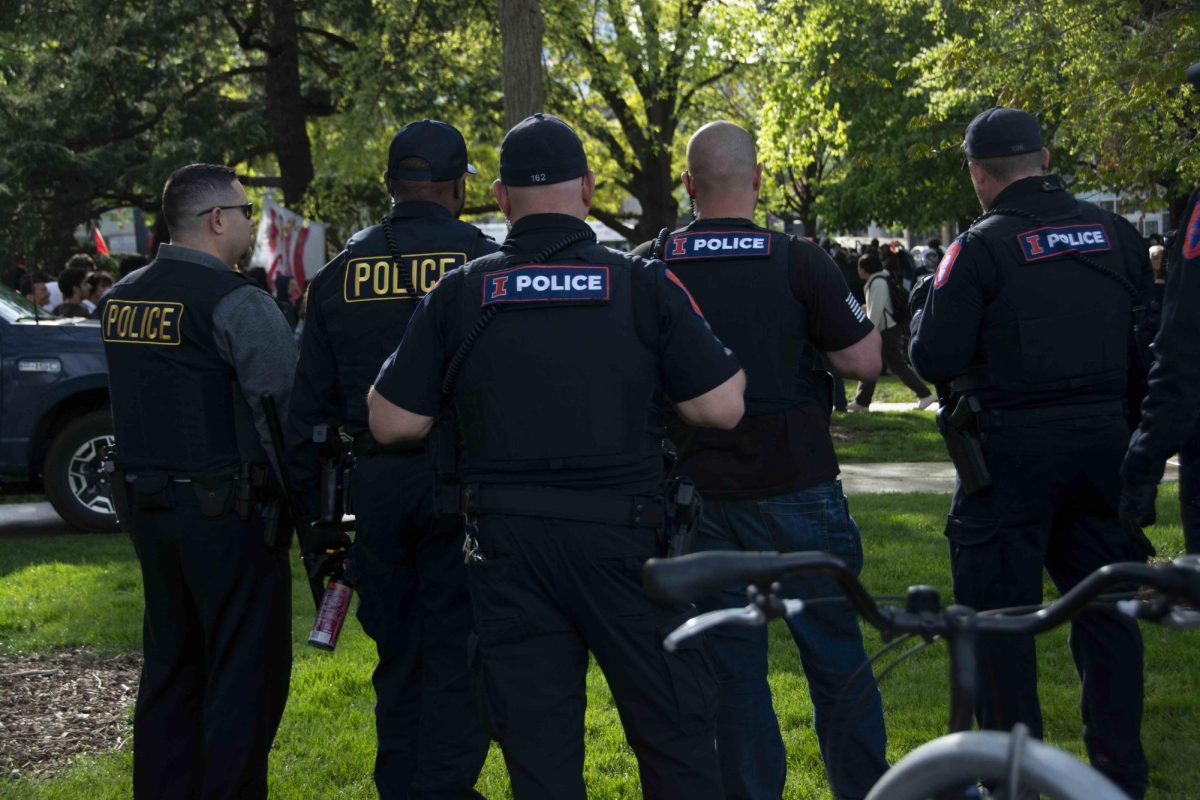The City of Champaign and the family of Kiwane Carrington, a 15-year-old boy who was killed last year during an altercation with Champaign police, have reached a potential settlement agreement in the case.
City Attorney Fred Stavins said the agreement is numbered at $470,000, which would go to the family if approved at Tuesday evening’s city council meeting. It is also pending approval and authorization by the city court.
The lawsuit was filed last year with the Champaign Circuit Court by Chicago lawyer James Montgomery Jr. on behalf of Carrington’s sister Kenesha Williams. The suit has cost the city more than $24,924 in legal fees.
City council members were largely absent from settlement discussions that have been ongoing since last November. Council Member Michael LaDue, District 2, said the city council’s absence from the legal discussion was appropriate.
“When this became a matter of litigation, this became something council didn’t discuss,” he said.
Get The Daily Illini in your inbox!
LaDue said the shooting was an accident and disputed the idea that racial profiling was involved.
“It was a perfect storm of unfortunate circumstances that came together to produce tragedy,” LaDue said.
Carrington was killed last October in a shooting involving Police Officer Daniel Norbits and Police Chief RT Finney. Carrington and his friend Jeshaun Manning Carter were in the backyard of a residence at 906 W. Vine St. when Finney and Norbits responded to a burglary call at that address. According to reports, a physical struggle between Carrington and Norbits ensued, which led to the officer discharging his firearm.
The office of State’s Attorney Julia Rietz ruled that the fatal shooting was an accident, but Norbits was given a 30-day suspension earlier this year by City Manager Steve Carter for failing to follow police protocol and maintain control of his weapon. The suspension was the maximum penalty the city could give Norbits, who is on paid administrative leave.
The lawsuit filed by Montgomery in part accuses Norbits of being negligent.Stavins said he anticipates some kind of closure will come with the end of the settlement.
“Nothing is going to bring this young man back, but this is society’s way of dealing with these matters,” he said.
Stavins also said he does not know that any amount of money could be considered closure for a loss in a family.
“The family will continue to feel a loss their entire life; the community, we hope, can come together and move forward from this,” he said.




